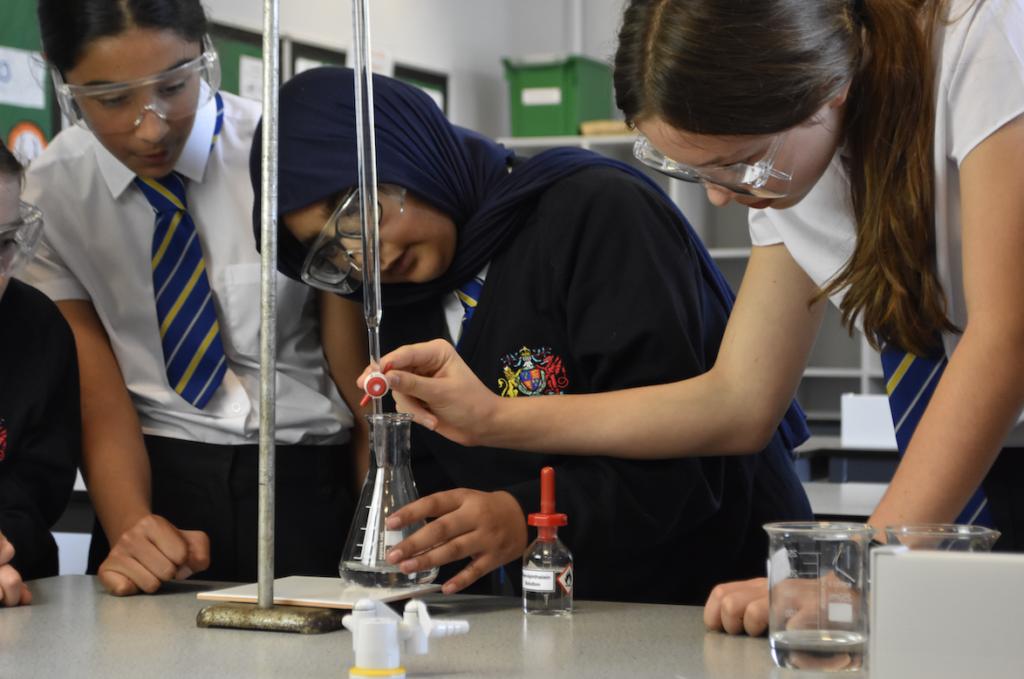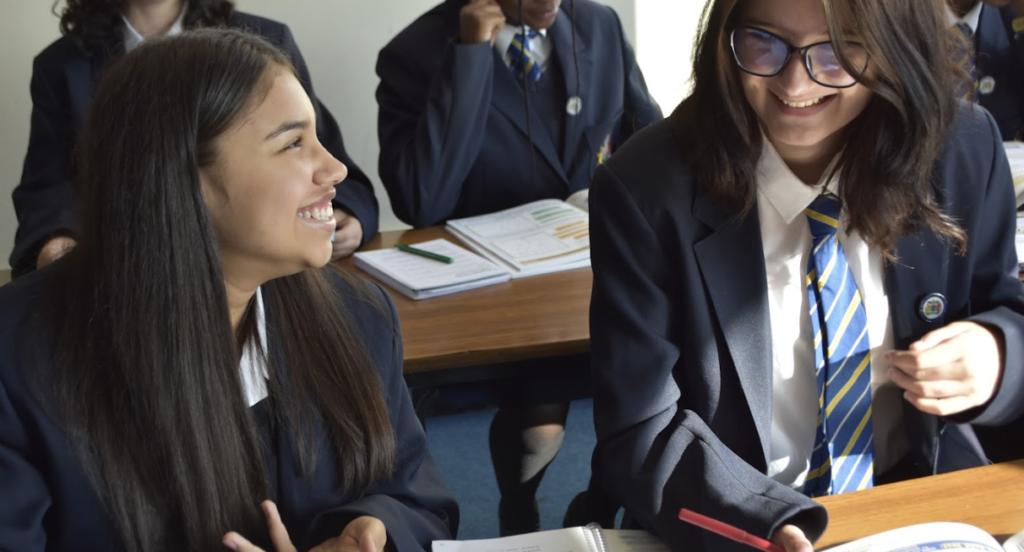Component 1: Devising Theatre. Students explore a range of performance genres, design concepts (costume/makeup/set) and create an original performance or design and create a set or costume from a stimulus set by the examination board. This is worth 40%.
Component 2: Performing from a text. Students perform two extracts of a play of their choice to a visiting Eduqas examiner or design and create a set or costume for the performers. This is worth 20% of the qualification.
Component 3: Interpreting Theatre. Students will study a complete play through practical application and watch a live performance and analyse these during a written examination. This is worth 40% of the mark.
Students will visit a range of live performances across the country, watch touring theatre companies and explore a wide range of theatre genres including physical theatre, naturalism and surrealism to aid their exam work. Students will work both individually and in groups and will be able to tailor the course to their own learning style and preference.
Year 10
Autumn Term
Devising Strategies and Theatre Practitioners
Students build upon the core performance knowledge and skills taught at KS3. They will study and apply a range of devising strategies and techniques to a centre chosen stimulus. (This will vary each year).
Students will be introduced to three theatre practitioners, Emma Rice, Bertolt Brecht and Steven Berkoff. They will participate in workshops in each style and apply one of these to their own devised piece.
Spring Term
Set Text study ‘Find Me’
In this unit, students will study ‘Find Me.’ This text will be explored practically to begin to prepare students for their written Component 3 exam. This scheme will explore the historical context, style, characters, themes, original performance conditions of the play. Students will complete scene breakdowns and a range of notes as well as performing key extracts from the script to consolidate their learning.
Summer Term
Component 1 Devising Theatre (Assessment)
Students choose one stimulus from a list of four supplied annually by Eduqas. The stimulus materials will always consist of:
• a quotation
• a song
• a picture
• a concept or statement.
Students devise a piece of theatre in response to the stimulus which demonstrates either the techniques of a theatre practitioner or the dramatic characteristics of a specific genre of the learner’s choice from the autumn term. Students will:
- Research and develop ideas using the techniques or characteristics of the practitioner or genre
- Rehearse, amend and refine the work in progress.
- Keep a log of supporting evidence and complete an evaluation of the finished performance.
Year 11
Autumn Term
Component 3: Interpreting Theatre. Evaluation and Live Theatre.
Students will focus on the evaluation of their own and professional live theatre seen during the course. They will build their examination technique and complete their first Year 11 mock examination.
They will also revisit the content for the final written examination and the set text study.
Spring Term
Component 2: Performing From a Text (Assessment)
Students study two 10 minutes extracts from a play of their choice (chosen with teacher guidance) and will be assessed on the final acting performance or design. Design students can choose: set design (including props) or costume design (including hair and make-up).
They will make artistic decisions about the work and create a final design or performance with direction from the teacher. In preparation students will study the following Stanislavski techniques:
- Concentration of attention
- Relaxation of muscles
- Units and objectives
- Emotional memory
- The magic ‘if’
- Tempo-rhythm and movement
- Diction
- Intonation and pauses
- Restraint and control
- Naturalistic set, costume, lighting and sound
Summer Term
Revision for Component 3
Students will spend time revisiting the component 3 content and practising examination questions.
Assessment at Key stage 4
Summer Year 10 – Component 1: Devising Theatre (40%)
This unit is internally assessed and externally moderated. Students use the knowledge gained throughout Year 10 and the examination board stimuli to create an original piece of theatre. It consists of
- A portfolio of supporting note
- A performance
- An evaluation that takes place in examination conditions.
Spring Year 11 – Component 2: Performing from a text (20%)
This is a practical examination that is externally assessed by a visiting examiner. Students perform two key scenes from a text that contrasts with their set text study.
Summer Year 11 – Component 3: Interpreting Theatre (40%)
This is a 90 minute written examination that takes place in the final examination period. It is externally marked.
How can parents help support their child’s learning?
WJEC/EDUQAS GCSE Drama by Gary Nicholas.
GCSE Drama: Live Theatre evaluation by Annie Fox
WJEC/Eduqas GCSE Drama – Designing Drama: Lighting, Sound, Set & Costume Design by Sue Shrewing
WJEC/Eduqas GCSE Drama Study & Revision by Rachel Knightley
‘Find Me’ by Olwen Wymark.
BBC Bitesize – GCSE Drama
https://www.bbc.co.uk/bitesize/subjects/zbckjxs
Eduqas GCSE Drama website and resources.
https://www.eduqas.co.uk/qualifications/drama-gcse/?sub_nav_level=digital-resources#tab_resources
The National theatre online
https://www.ntathome.com/
Enrichment opportunities
Both as part of the course and for enrichment students will attend at least one theatre visit per year.
There will be other opportunities with the Birmingham Hippodrome depending on what they offer in each term. These may include backstage tours and workshops.
Students are encouraged to audition for the School Production.
GCSE course/s (exam board and code)
![]()



